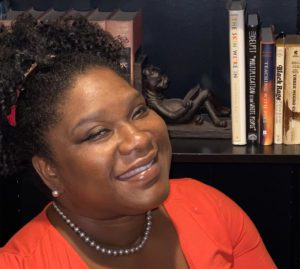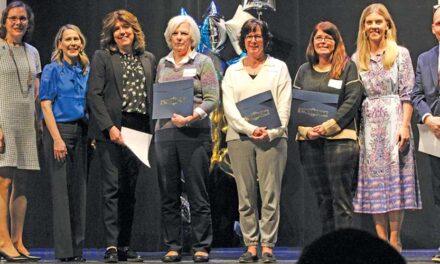By DAN TOMASELLO
LYNNFIELD — It’s critically important to have compassion for people, Equity Process CEO/Founder Cyndi Weekes-Bradley said during a recent presentation on Zoom.
A Healthy Lynnfield, Lynnfield for Love, the Lynnfield Clergy Association, the Lynnfield Anti-Racist League and the Lynnfield Public Library sponsored Weekes-Bradley’s presentation called “Compassionate Conversations About Equity.”
“We all got together as organizations last year to discuss how can we raise awareness in the community around the issues of diversity, equity and inclusion,” said Substance Use Prevention Coordinator Peg Sallade.
Sallade recalled that The Equity Process conducted an equity audit of the school system last year.
“Cyndi also did a presentation for town employees,” said Sallade.
Weekes-Bradley has worked in education for over 20 years. She is a certified early childhood education teacher and is certified as a principal and assistant principal for grades preK-6 and grades 9-12. She is also a certified special education administrator at all grade levels and is licensed to be a school superintendent.
“I have worked in Boston and Randolph, and I am a lecturer at a local university,” said Weekes-Bradley. “I got my master’s degree from Simmons College and I got my bachelor’s degree from UMass.”
Weekes-Bradley is currently enrolled in Stanford University’s compassion training program.
“I needed to find out the science behind compassion,” said Weekes-Bradley. “I am a super nerd.”
Weekes-Bradley said her “capstone in compassion school is bridging the gap between racism and humanity in education.”
“In education, we have to come together for students because kids are our future,” said Weekes-Bradley.
Weekes-Bradley said it’s important to be compassionate and have empathy for other people, especially people of color.
“Compassion is always inclusive, not exclusive,” said Weekes-Bradley. “We don’t come from the same place. We come from different backgrounds and different cultures, and we should be thoughtful and respectful. I want us to come from a place of curiosity instead of judgment.”
Weekes-Bradley encouraged attendees to have empathy for people who speak English as a second language.
“We need to be compassionate and patient when conversing with others who speak another language and whose first language is not English,” said Weekes-Bradley. “Broken English does not demonstrate a person’s intelligence.”
Weekes-Bradley showed attendees a TED talk video of Western Washington University student Karen Leung discussing the discrimination her family has experienced after her parents emigrated from China to the U.S. Leung also noted that English is her second language.
“Throughout my family’s time in the U.S., we have faced discrimination due to our race, ethnicity, culture and the use of our language,” said Leung. “My parents are geniuses. They taught themselves how to read and write traditional Chinese, how to speak Mandarin, how to play multiple instruments and have thrived since coming to the U.S. My parents know English, but they are not fluent. My parents are very knowledgeable in Cantonese and English, but they are still seen as unintelligent and their English is labeled as broken.”
Leung said people have told her parents to “speak American,” which she noted is “not a language.”
“This is an example of the discrimination that immigrant families experience in our communities and in our country,” said Leung. “It takes an intelligent person to learn and master more than one language.”
Weekes-Bradley said she has reviewed the town’s Census data, which she said revealed an “uptick” in people whose first language is not English.
“Embrace folks as they come into Lynnfield,” said Weekes-Bradley. “I know we will be ready to accept folks for who they are.”
Weekes-Bradley said she was incredibly impressed by a group of now freshmen girls who urged the School Committee last June to overhaul the district’s dress code policy because it was unfair toward young women and was unequally enforced. The school board approved the policy change last August.
“Gender bias is not just in Lynnfield,” said Weekes-Bradley. “It’s in schools, the workplace and all over the world. Stereotypes can be changed by looking at facts and not just passing down stories from generation to generation. Teaching compassion can change that.”
Weekes-Bradley also showed the presentation’s attendees a video from the United Kingdom featuring a teacher asking students to draw pictures of firefighters, fighter pilots and surgeons during a lesson. After being given the assignment, all of the students drew pictures of men. The teacher then brought in three women who work in each profession, and the students were excited while talking with the women about their careers.
“Gender bias starts pretty early,” said Weekes-Bradley. “We have the ability to break negative cycles and show what reality is. Gender bias does hurt, and we can change it.”
Weekes-Bradley noted that unconscious biases pertain to social stereotypes about certain groups of people that individuals form outside of their own conscious awareness.
“Unconscious bias is the bias we really don’t understand that we have,” said Weekes-Bradley. “It’s not at the forefront, but it still exists. We all have this inner voice, and it’s important to question it. Notice how we perceive others. Try challenging yourself and play devil’s advocate. When you hear something different, maybe that difference is what we need to make the correction.”
Weekes-Bradley also encouraged people to “listen more.”
“Don’t just listen to respond,” said Weekes-Bradley. “Listen with your heart and your soul, and not just with your ears. When we listen to people, we make them feel valued and make them feel heard. It’s time we take knowledge from our heads, and move it into our hearts and our souls.”
Weekes-Bradley concluded her presentation by giving an overview of microaggression.
“Microaggression is a term used for common place daily verbal, behavioral or environmental slights whether they are subtle, intentional or unintentional that communicate hostile, derogatory or negative attitudes towards stigmatized or culturally marginalized groups,” said Weekes-Bradley.
Weekes-Bradley concluded the presentation by showing attendees a video featuring Asian, Black and Jewish teenagers discussing how racist jokes and comments directed toward them are hurtful.
“Microaggressions often happen between students in schools,” said Weekes-Bradley. “Adults are often not part of those conversations. Kids just deal with it on their own and try to figure it out, but that does not remove the impact. Don’t pretend discrimination doesn’t exist.”





